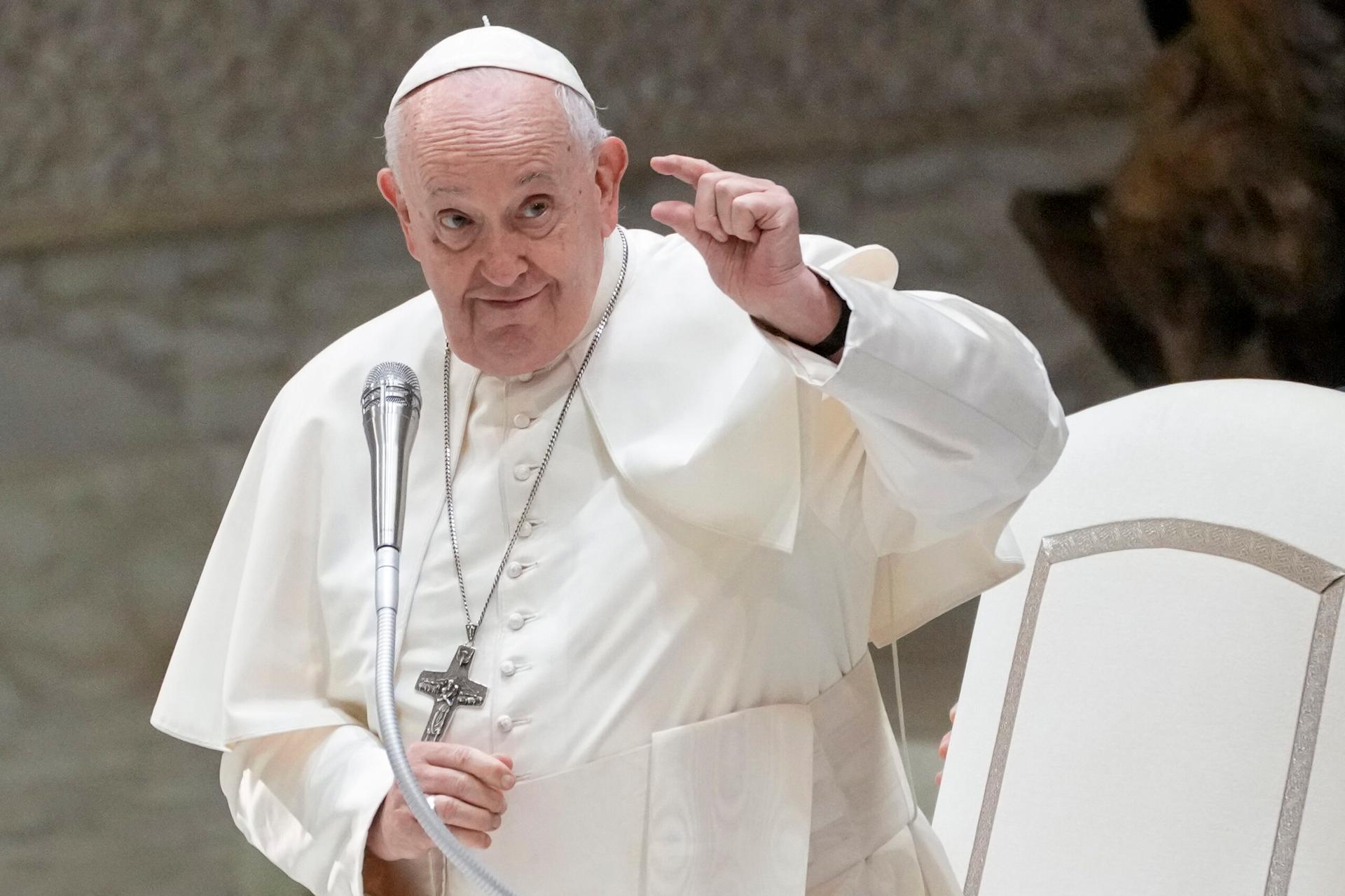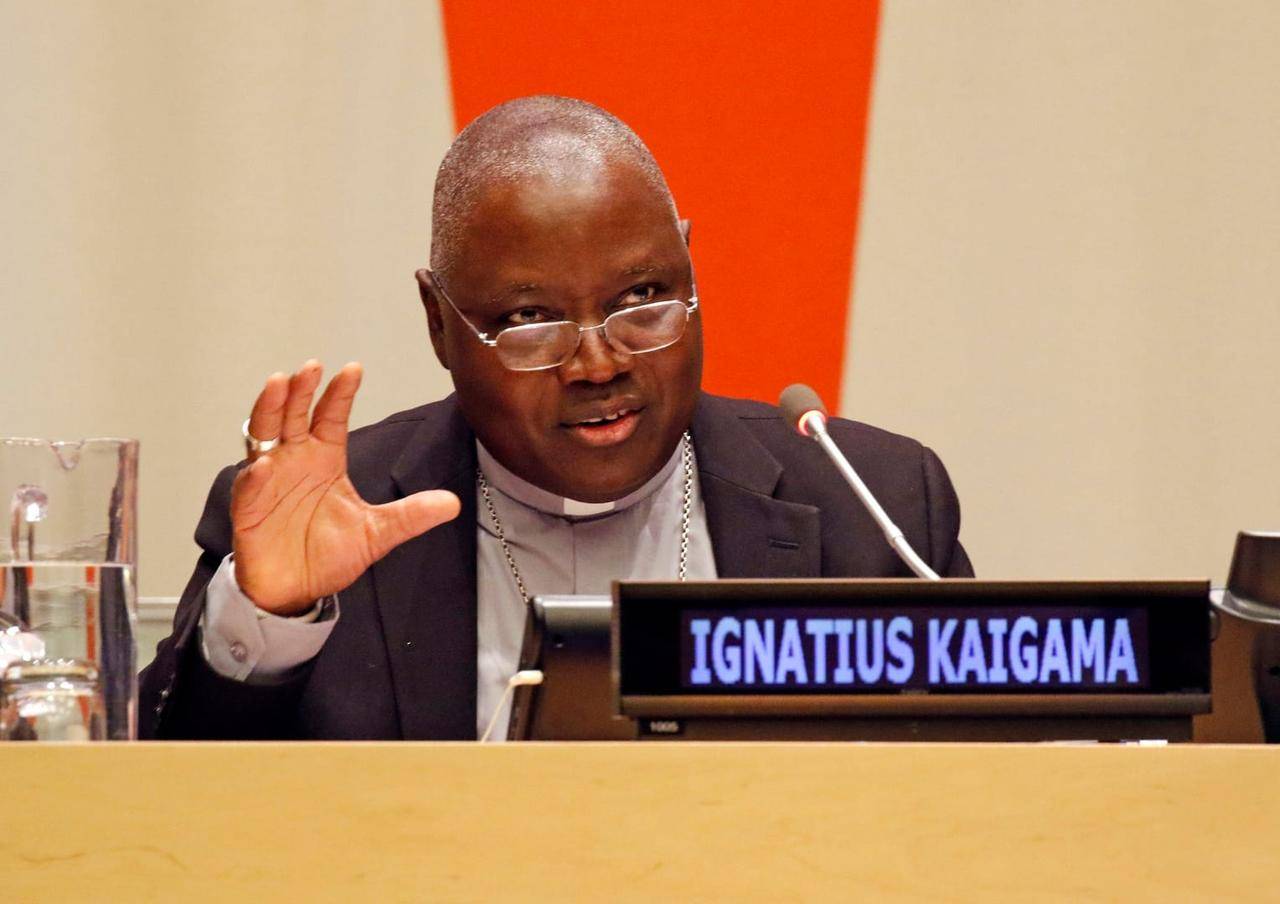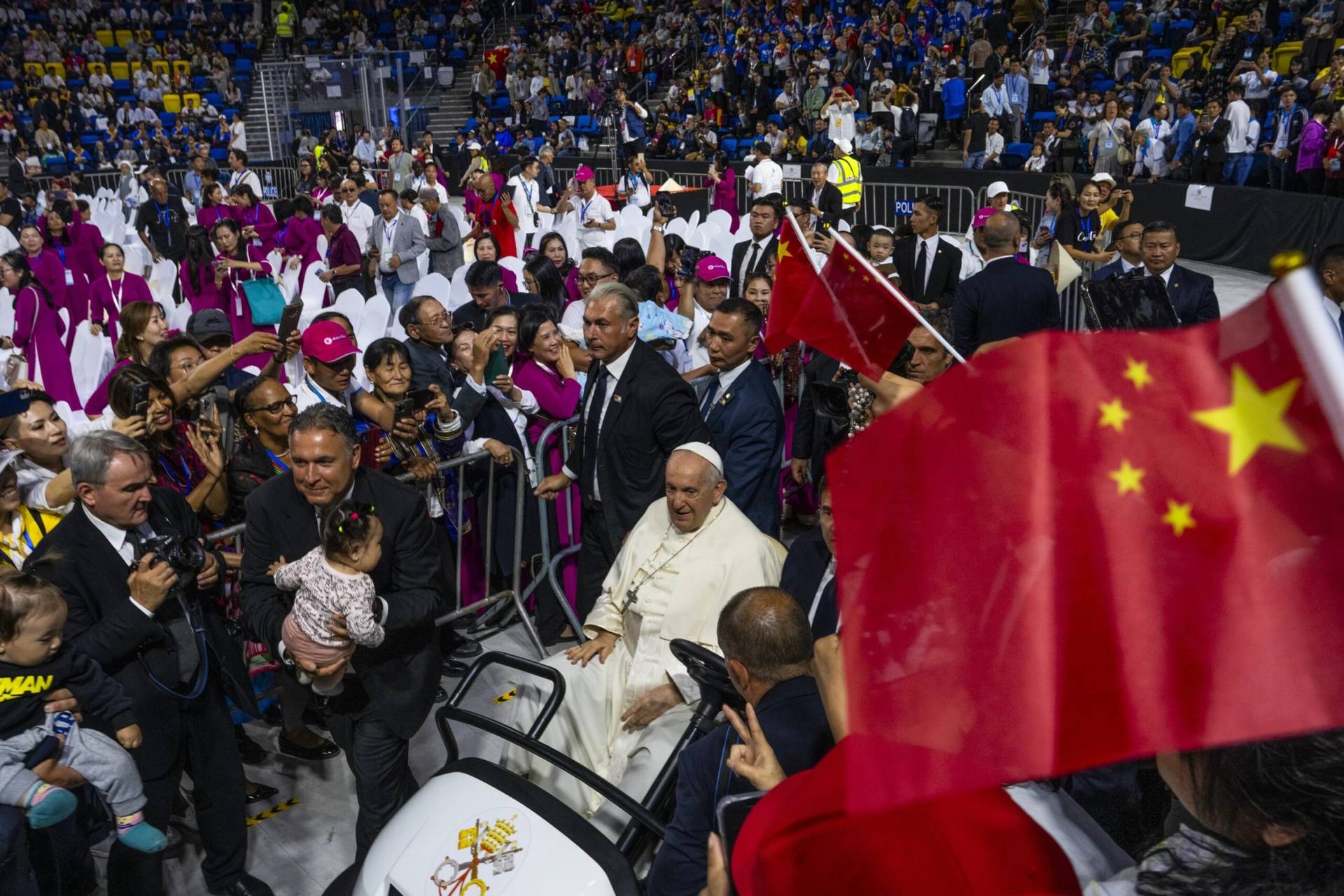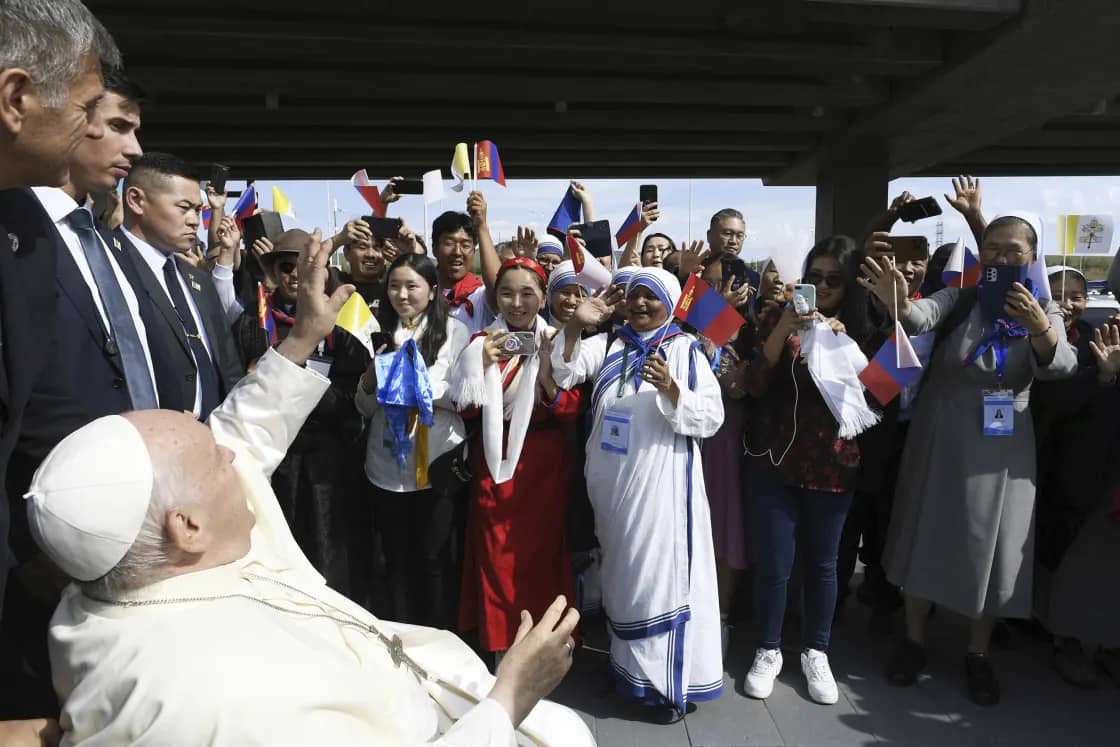ABOARD THE PAPAL PLANE – Pope Francis largely rejected criticism of his outreach to both China and Russia on Monday, insisting that the Vatican enjoys a “very respectful” relationship with Beijing and praising Russia for possessing a culture with “great beauty and depth.”
The pontiff also warned against the influence of what he called “ideology” on an upcoming Synod of Bishops at the Vatican, indicated that his future travel plans may be curtailed given considerations of health and limitations on movement, and also distanced himself from climate change extremists.
The pope spoke during an in-flight news conference with journalists on the return flight from a four-day trip to the Mongolian capital of Ulaanbaatar Aug. 31-Sept. 4, making him the first pontiff ever to visit the homeland of the former Mongol empire.
Given Mongolia’s proximity to both China and Russia, the pope’s approach to those two nations was an important piece of subtext to the visit, especially in light of recent controversies surrounding both relationships.
On China, critics have accused Francis of remaining silent on human rights abuses and violations of religious freedom in exchange for a deal on the appointment of bishops in the country, an agreement which Beijing has violated on at least two occasions since it was inked in 2018.
On Russia, a recent comment by Francis praising the legacy of “Great Mother Russia” in a video conference with Catholic youth in the country brought blowback from Ukrainian officials, who accused the pontiff of recycling Russian “imperialist propaganda.”
Asked about the two nations during the news conference, Pope Francis broadly defended his policies and statements.
“Relations with China are very respectful, very respectful,” the pope said.
“Personally, I have a great admiration for the Chinese culture, they are very open,” he said, adding that many Catholic pastors and intellectuals study in Chinese universities, so “there is openness in this sense.”
“I think we must keep going forward in the religious aspect to understand each other better so that the Chinese don’t think that the church doesn’t accept their culture or their values, and that the church depends on a different foreign power,” he said, alluding to what has traditionally been a key source of concern for the Chinese government about the Catholic presence in the country, presently estimated to number roughly 13 million.
Relations with China, the pope told journalists Monday, are “in progress.”
Outreach to China featured throughout the pope’s four-day Mongolia trip. During his final Mass in Ulaanbaatar’s Steppe Arena Sunday, for instance, the pope offered an off-the-cuff greeting to the “noble Chinese people.”
He also instructed Chinese Catholics, around 170 of whom quietly made their way to Mongolia using a tourist visa in defiance of the government’s ban on traveling for religious purposes, to be both good Christians and good citizens.
In terms of the objections to his recent comments praising Russia and historic leaders such as Catherine II and Peter the Great, Francis said he always tells young people to embrace their legacy, and that his reference to “Great Mother Russia” was “was not so much geographic but cultural, it’s what they taught us in school.”
He spoke of the Russian influence in art, music and literature, including the writings of Dostoyevsky, saying Russian culture “has a great beauty and depth,” and while there were some “dark political years” in Russia, the culture itself has much to offer.
“Russian culture must not be canceled because of politics,” the pope said.
Francis distinguished between culture and imperialism, saying, “I wasn’t thinking of imperialism when I said that, I was thinking of culture, and tradition and culture is never imperialist, never. It always dialogues.”
“There are some imperialists who want to impose their ideology. When a culture is distilled and becomes ideology, this is poison. A distilled culture becomes ideology, we must distinguish between this,” he said.
The pontiff said the dangers of ideology also lurk within the Catholic Church, including with regard to controversies surrounding an upcoming Synod of Bishops in October, meaning a gathering of bishops and other Catholic leaders, both clerical and lay, to be staged in Rome on the subject of “synodality.”
Some critics, including a handful of bishops such as Americans Cardinal Raymond Burke and Bishop Joseph Strickland, have warned that the synod could pose the risk of schism, meaning a formal split in the church, if it were to flirt with doctrinal changes such as blessing same-sex unions, embracing transgender rights or accepting the validity of other religions.
In effect, Francis dismissed such reactions as ideologically driven.
“Ideologies are often put into the church that detach the church from the life that comes from the roots,” he said.
“Ideology is impossible to calm down. If ideology gains strength and becomes political, usually it becomes a dictatorship, an incapacity for dialogue and going forward with culture,” he said.
Francis said “there is no place for ideology” in the synod, and that the synod discussion is “another dynamic.”
“When one begins thinking in an ideological way, the synod ends,” he said. “There is no place for ideology. There is a place for dialogue and discussion among brothers and sisters and with the church’s doctrine, going forward,” he said.
Pope Francis stressed that the concept of synodality and the institution of the synod was not his idea, but has existed in the eastern Catholic churches for centuries. The establishment of the Vatican’s office for the Synod of Bishops in 1965, he said, was Pope St. Paul VI’s response to what he perceived as a loss “of the synodal dimension” in the western church.
The synod, he said, is about “how to live synodality as a Christian without falling into ideology,” he said, saying prayer is at the heart of the process, and that without this spiritual aspect, “it is politics, it is parliamentarism, and the synod is not a parliament.”
Francis said that some months ago he called a Carmelite house and was speaking with the Mother Superior. During the call, he said the Mother Superior confided that “we are afraid of the synod.”
When he asked her why, Francis said the response was that “we are afraid that the doctrine will change.”
The pope essentially rejected such fears.
“There is this image, but if you go to the roots of these ideas, there is ideologies. Always, when the path of communion is detached in the church, what is behind it is always ideology,” he said, noting that people accuse the church of many things, “but they never accuse it of what’s true: it’s a sinner.”
“They never say ‘sinner.’ They defend a ‘doctrine’ that is a doctrine that is like distilled water, which doesn’t taste like anything, and which is not true Catholic doctrine, which is in the Creed,” he said.
“Ideologies are always distilled, and they never scandalize,” he said.
Asked about future travel plans, the pontiff confirmed that he will be going to Marseille in France as planned at the end of September, and said another trip to “a small European country” is being considered.
Other than that, he said, “For me to do a trip right now is not easy like in the beginning, there are limitations in walking.”
The pontiff had previously discussed hopes to visit both Argentina and India next year, but offered no indication of whether those plans are still in place.
Recently, Pope Francis also announced a second edition of his 2015 encyclical on the environment, Laudato si, which will be published Oct. 4, the feast of his namesake, St. Francis of Assisi.
In the news conference, he was asked whether there would be an endorsement of environmental activists who engage in controversial protests, such as attaching themselves to monuments or blockading roads. One such groups, Last Generation, recently saw three members fined thousands of euros by a Vatican court for gluing their hands onto a famed statue in the Vatican Museums.
“In general, I don’t accept these extremists,” the pope said. “Young people are worried because it’s their future…Young people think about the future, and in this sense, I’m glad that they fight well, but when ideology or political pressure is present, this does no good.”
Francis said his update to Laudato si’ will address progress made since the 2015 COP UN climate summit in Paris, as well as other issues that still exist.
“Some things still have not been resolved, and there is urgency to resolve them,” he said.














